New Jersey Rehab Experts
Specializing in comprehensive orthopedic care, New Jersey Rehab Experts offers a wide range of services including Physical Therapy, Sports Physical Therapy, Dry Needling, Chiropractic Care, Neuropathy Treatment, Pain Management, and Manual Therapy. Our state-of-the-art facility is staffed by board-certified therapists dedicated to delivering top-tier care, ensuring you achieve optimal recovery and wellness.
Clinic Located in Jersey City (Newport), Secaucus and Clifton
Genuine Feedback from
Our Patients
Our Affiliations

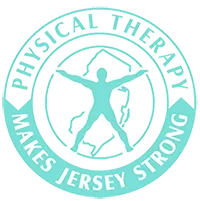




Explore Our Diverse Range of Disciplines
Discover a world of exceptional care customized for all ages! Our dedicated professionals deliver top-notch medical attention, expert rehabilitative therapy, and warm companion care for adults, seniors, and young patients. Experience personalized healthcare with a heart!
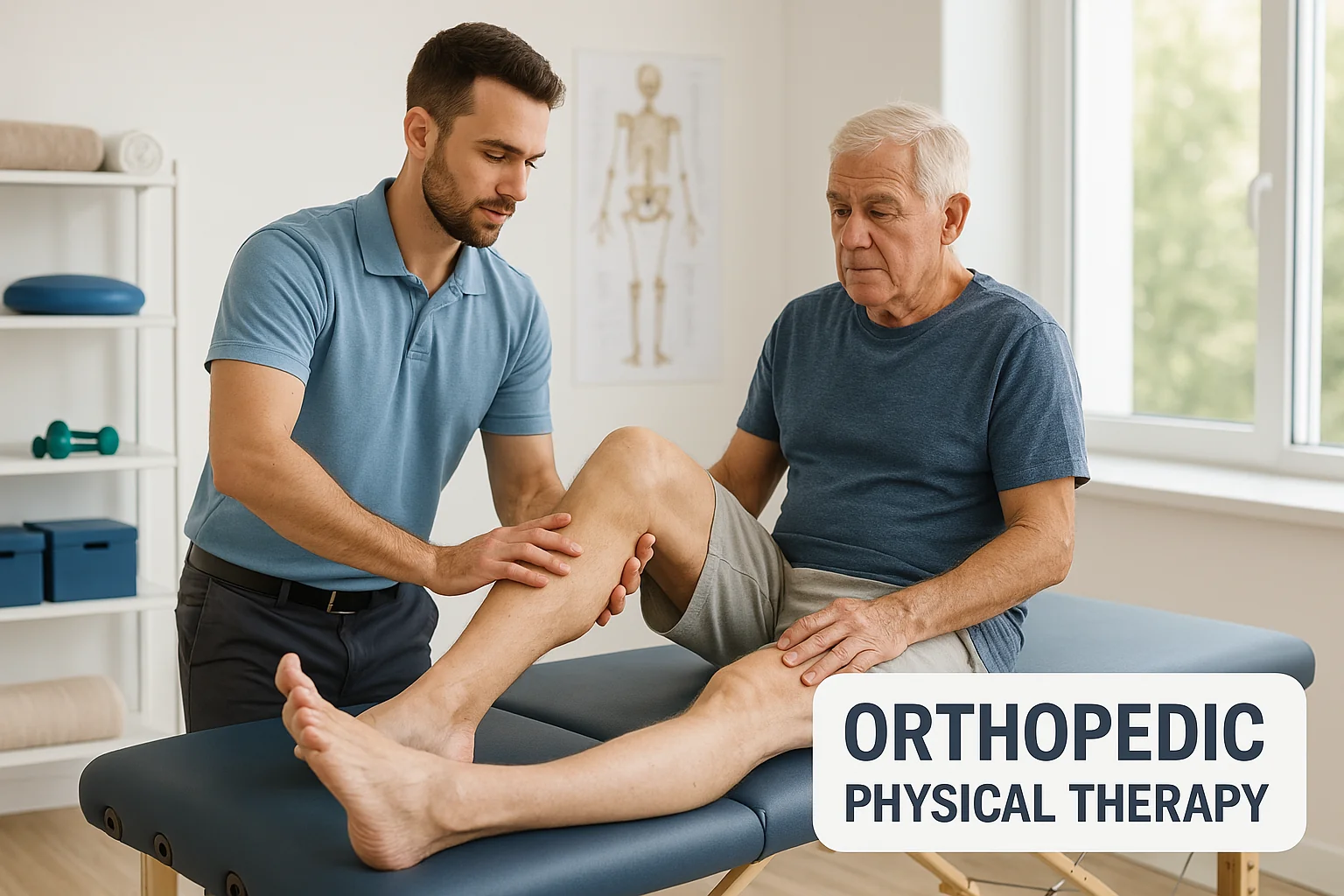
Orthopedic Physical Therapy
Specialized care for musculoskeletal injuries, surgeries, and chronic conditions affecting bones, joints, muscles, ligaments, and tendons.
- Sports injuries
- Arthritis management
- Post-surgical rehab

Geriatric Physical Therapy
Specialized care for older adults, addressing age-related changes affecting balance, strength, mobility, and independence.
- Fall prevention
- Balance training
- Mobility enhancement
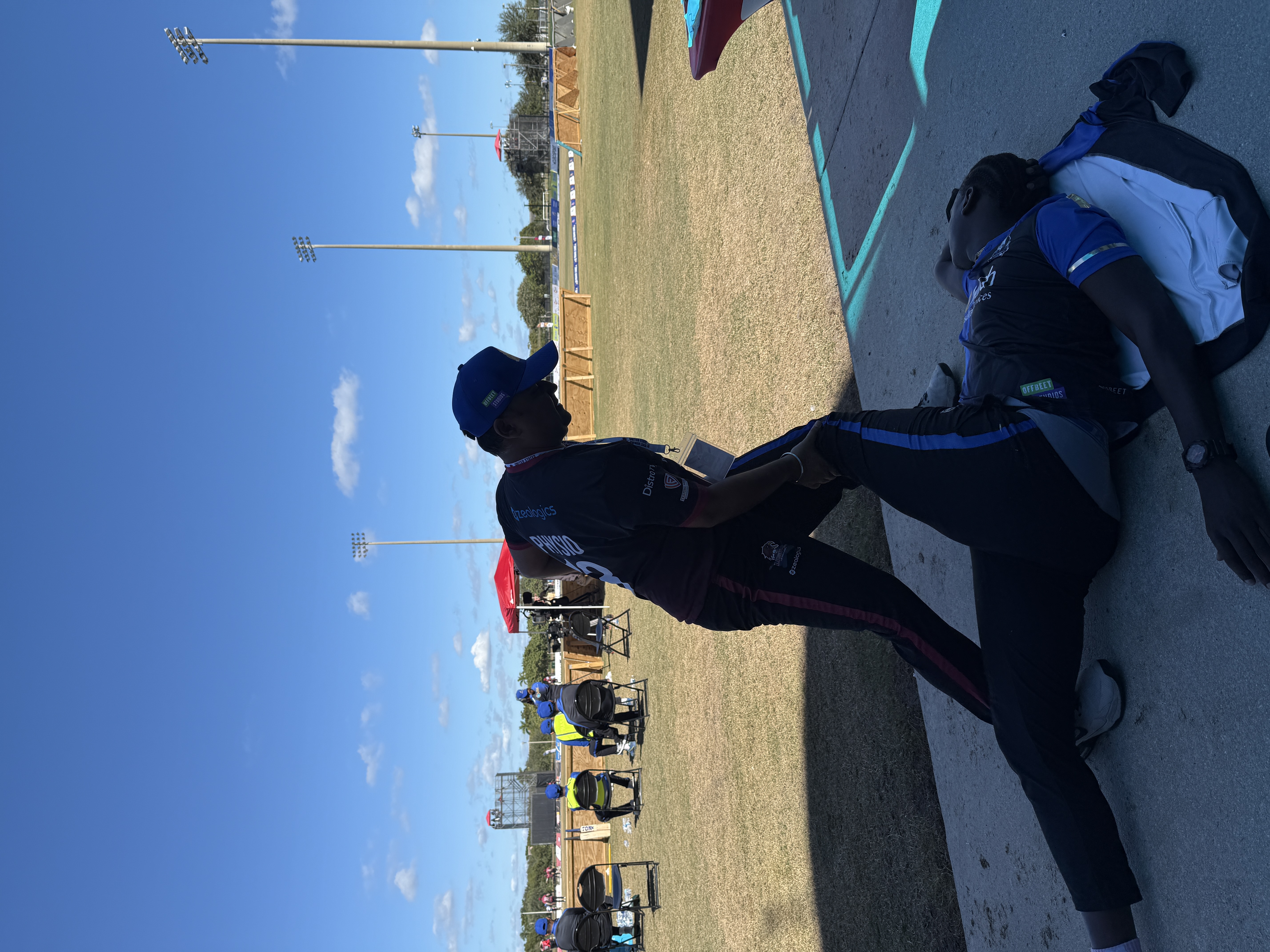
Sports Physical Therapy
Specialized rehab for athletes of all levels, from weekend warriors to professionals, focusing on injury recovery and performance enhancement.
- ACL rehab
- Return-to-play testing
- Performance optimization

Vestibular Rehabilitation
Specialized therapy for dizziness, vertigo, and balance disorders stemming from inner ear and balance system dysfunction.
- BPPV treatment
- Balance retraining
- Dizziness management
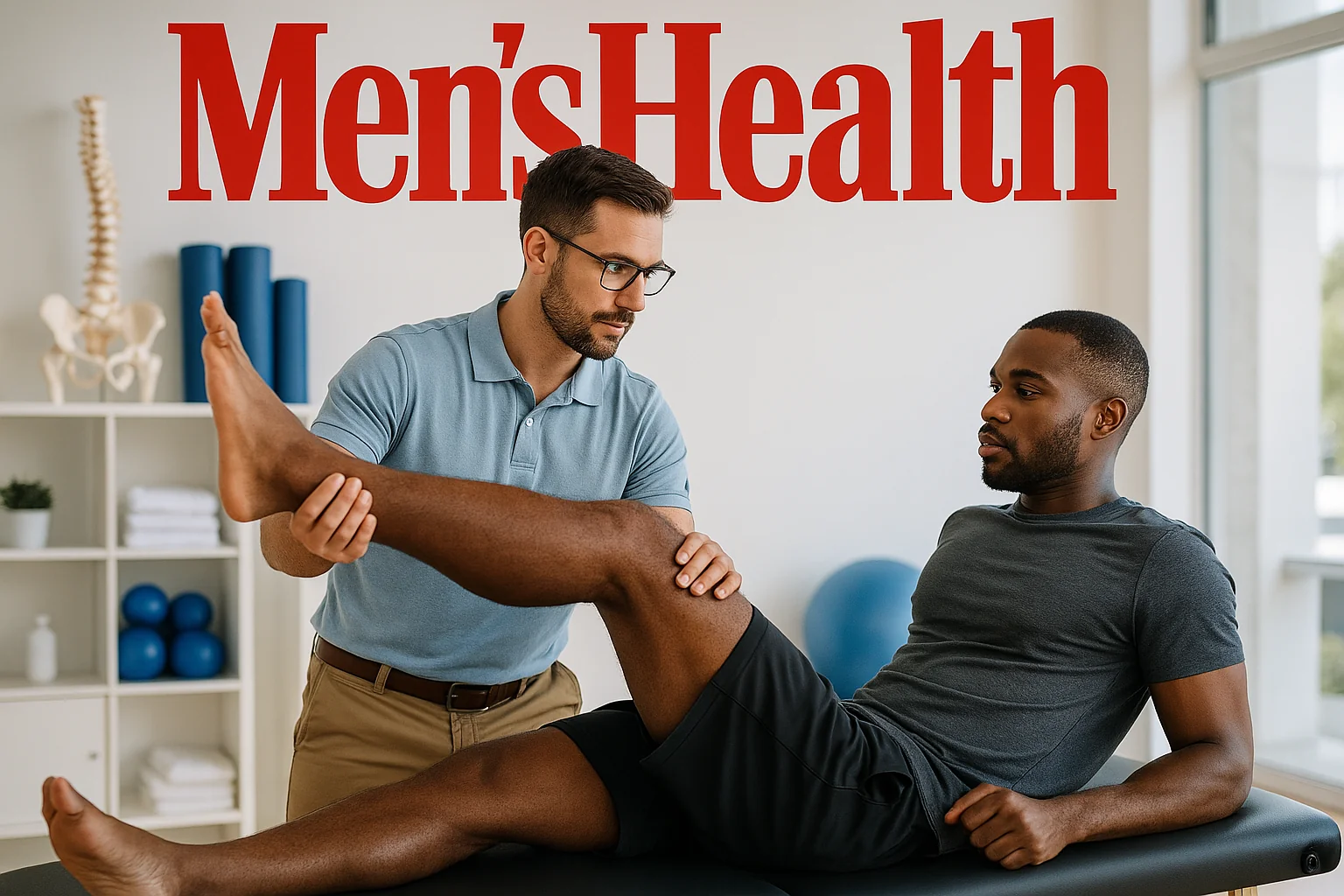
Men's Health Physical Therapy
Specialized care for pelvic floor dysfunction and related issues, providing discreet, effective treatment for men's specific health needs.
- Pelvic pain relief
- Post-prostatectomy rehab
- Urinary dysfunction

Motor Vehicle & Work Injury Rehab
Specialized care for car accidents and workplace injuries, with expert documentation and coordination with insurance providers.
- Whiplash treatment
- Workers' comp cases
- Personal injury claims
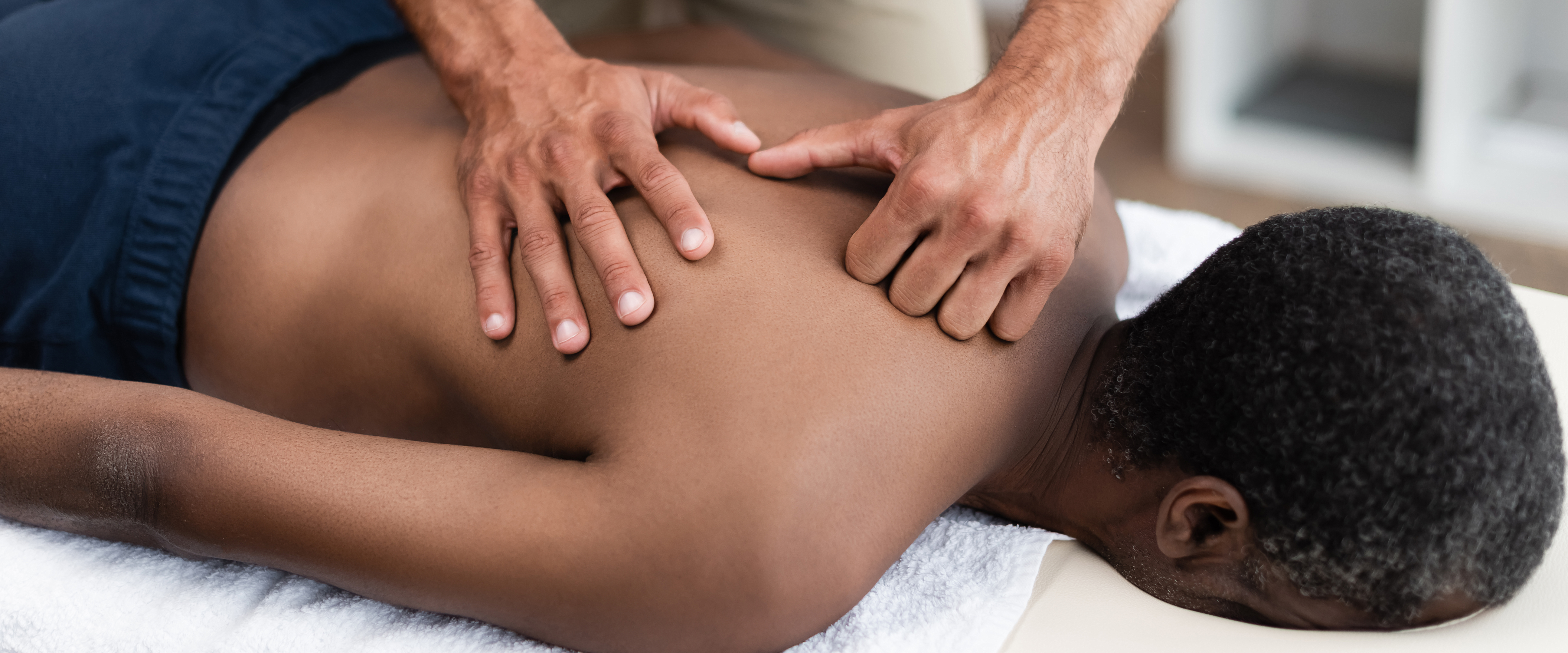
Manual Therapy
Hands-on approach using specialized techniques to relieve pain, improve mobility, and accelerate healing naturally.
- Mulligan Mobilizations
- McKenzie Method
- Myofascial Release
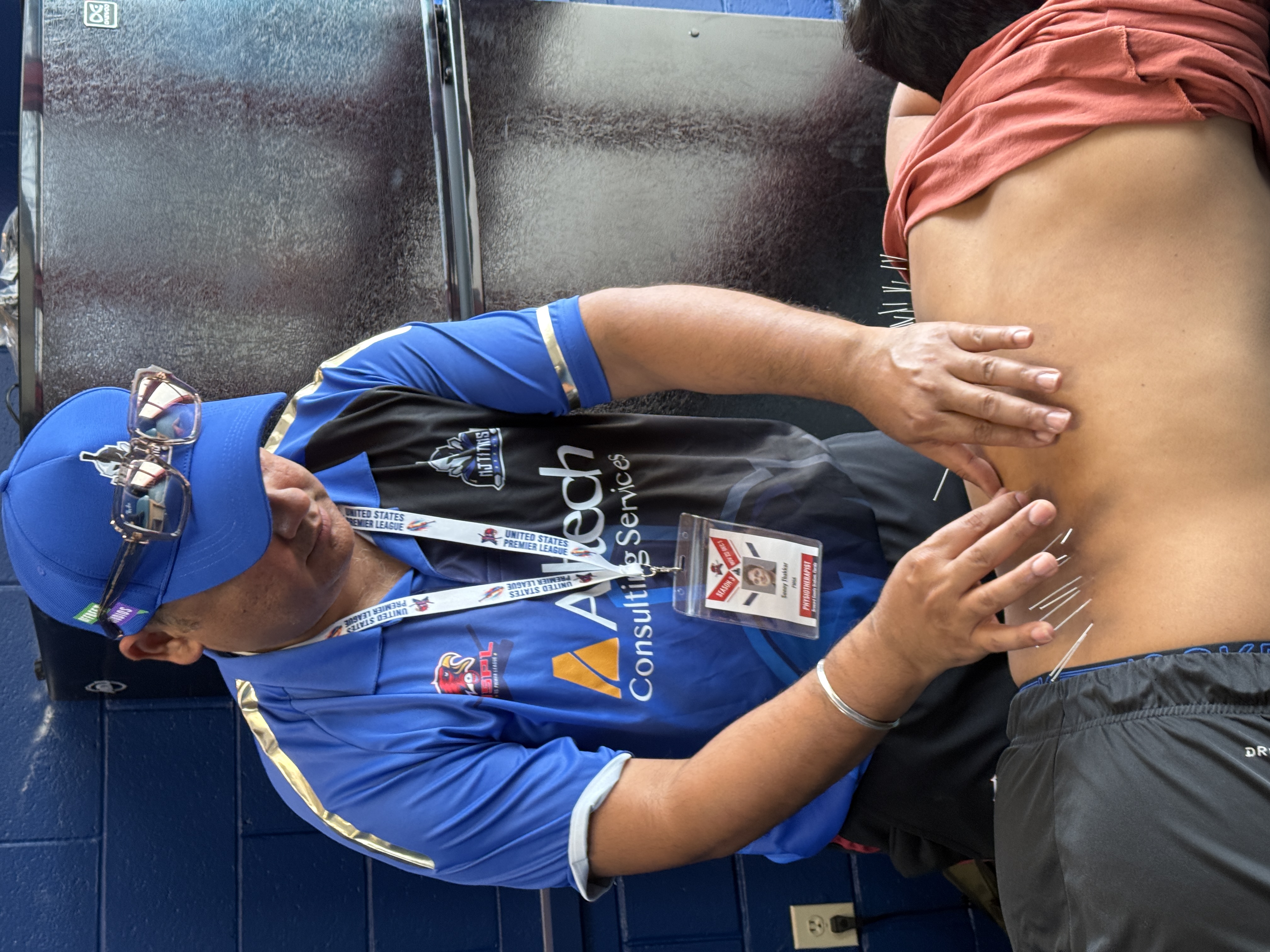
Dry Needling
Modern technique using thin, sterile needles to target trigger points, releasing muscle tension and restoring normal function.
- Back & neck pain
- Headaches & migraines
- Sports injuries
Ready to start your recovery journey?
Our expert therapists are ready to help you live pain-free and regain your mobility.
Our Advantages
Specialized Programs for Every Need
From orthopedic rehab and sports therapy to vestibular, pelvic health, and post-injury recovery, we provide comprehensive, patient-focused solutions.
State-of-the-Art Techniques & Technology
We use cutting-edge treatments like dry needling, spinal manipulation, Mulligan & McKenzie techniques, Fit3D scans, Shockwave Therapy , Cupping and more to accelerate healing.
Personalized One-on-One Care
Every patient receives individualized treatment plans with hands-on attention to ensure faster recovery and long-term results.
Trusted by Athletes & Community Leaders
Official providers for multiple cricket teams and a member of respected healthcare associations—our reputation speaks for itself.
Multiple Convenient Locations Across NJ
With clinics in Jersey City, Secaucus, Clifton , and beyond, we’re always within reach—offering flexible scheduling and bilingual support.
Seamless Support for Injury Claims & Recovery
We coordinate care with attorneys, physicians, and insurers for patients recovering from motor vehicle or work-related injuries, ensuring smooth documentation and stress-free rehab.
Meet Our Team

Sunny Thakkar PT, MS ( Exercise Physiologist)
Physical Therapist

Ashish Sinha, PT, DPT
Physical Therapist

Dr. Rohit Farzala PT, DPT
Physical Therapist
About Us
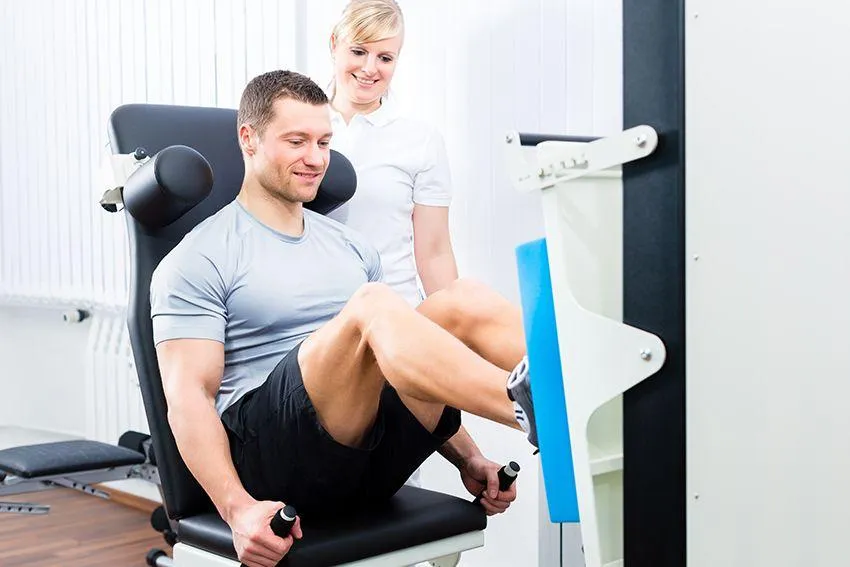

Experience rapid rejuvenation as our specialist team harnesses the power of advanced healing tech to erase pain with ease. We dive deep into your world, assessing every piece of the puzzle—stress at work, life pressures, physical health, nutrition, genes, posture, and even emotional ties—crafting a tailor-made wellness blueprint that's as unique as you are. With our dedicated holistic touch, we don't just treat symptoms; we empower you to embrace a pain-free, harmonious life.
Ask a Question
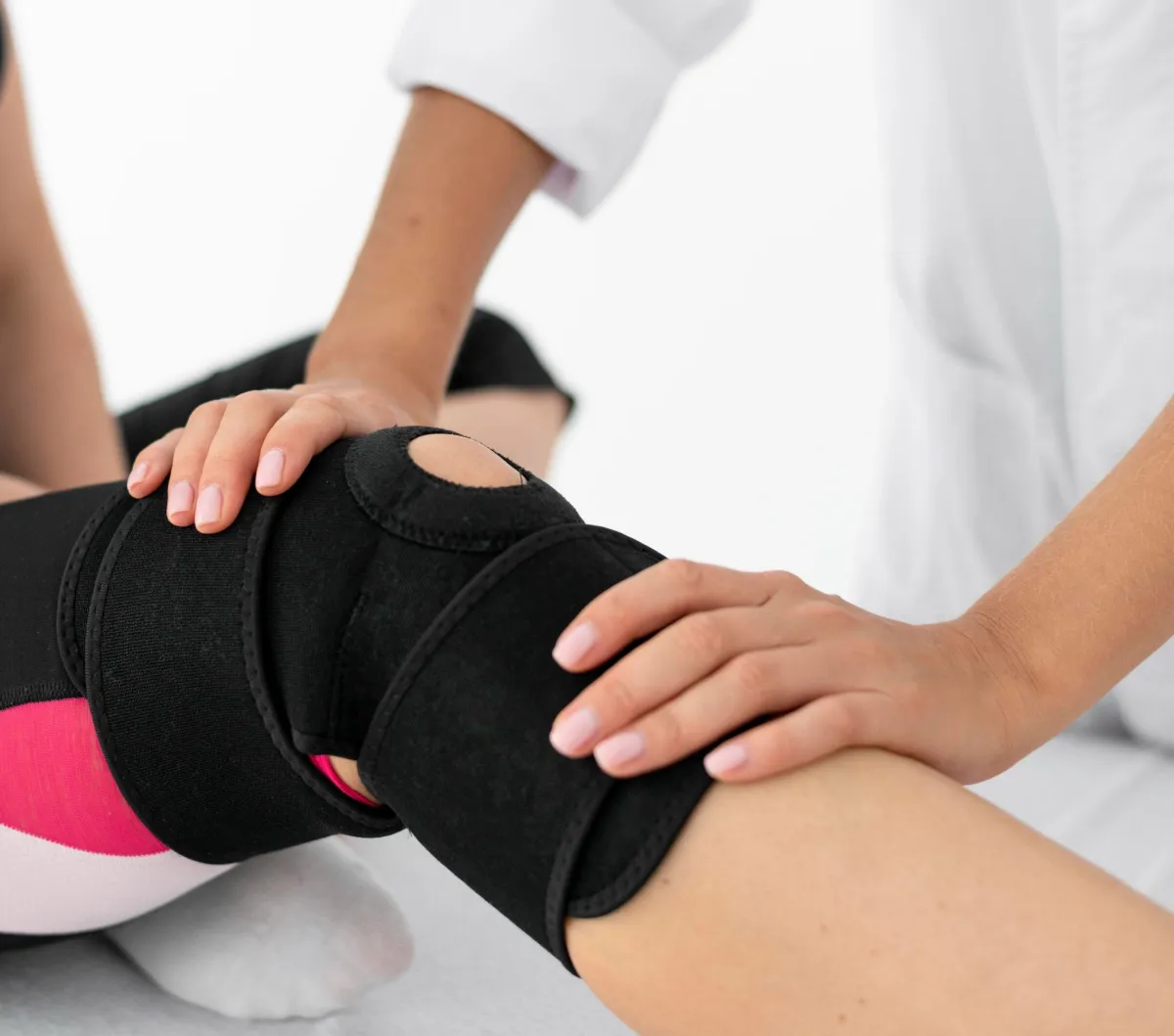
Find the Best Knee Specialist Near You: Your Ultimate Guide to Pain Relief and Recovery
Find the Best Knee Specialist Near You: Your Ultimate Guide to Pain Relief and Recovery
Are knee problems keeping you from enjoying life to the fullest? Whether it's nagging pain from an old injury or discomfort that suddenly crept up on you, finding the right knee specialist is crucial for effective pain relief and recovery. In a world where mobility is essential, knowing where to turn for expert medical advice can transform your experience. This ultimate guide is designed to simplify your search, offering tips on how to locate the best knee specialists near you. From understanding the symptoms that warrant a visit to evaluating credentials and treatment options, we’ll provide all the information you need to regain your active lifestyle. Don’t let knee pain dictate your schedule—take the first step towards healing and discover the right expert to get you back on track!
Understanding Knee Pain: Common Causes and Symptoms
Knee pain can stem from a myriad of causes, each with its unique set of symptoms. Understanding these causes is the first step towards seeking appropriate medical attention. One common cause of knee pain is osteoarthritis, a degenerative joint disease that results from the wear and tear of cartilage. This condition often leads to stiffness and swelling, making everyday activities like walking and climbing stairs particularly challenging. Another prevalent cause is rheumatoid arthritis, an autoimmune disorder that causes inflammation in the knee joints, leading to persistent pain and loss of function.
Injuries are another significant contributor to knee pain. Ligament injuries, such as a torn anterior cruciate ligament (ACL), are common among athletes and can result from sudden changes in direction or awkward landings. Meniscal tears, often caused by twisting motions, are another frequent injury that can cause pain, swelling, and difficulty moving the knee. Additionally, overuse injuries like tendinitis, which affects the tendons around the knee, can develop from repetitive activities and lead to chronic pain and discomfort.
Apart from arthritis and injuries, other medical conditions can also affect the knee. Bursitis, for example, involves the inflammation of the bursae, small fluid-filled sacs that cushion the knee joint. This condition can cause sharp pain and tenderness, particularly when pressure is applied. Patellar tendinitis, also known as jumper's knee, is another condition that results from overuse and leads to pain at the front of the knee. Understanding these various causes and symptoms is crucial for determining when to seek professional help, as early intervention can prevent further damage and improve outcomes.
Importance of Choosing the Right Knee Specialist
Selecting the right knee specialist is critical for effective pain relief and recovery. A knee specialist, whether an orthopedic surgeon, rheumatologist, or physiotherapist, brings a wealth of expertise and specialized knowledge to diagnose and treat knee-related issues. Their approach to treatment is tailored to the specific cause and severity of your condition, ensuring that you receive the most appropriate and effective care. Without the guidance of a skilled specialist, you may end up with a misdiagnosis or ineffective treatment plan, prolonging your pain and potentially causing further harm.
The right knee specialist can also offer a comprehensive treatment plan that addresses not only the symptoms but also the underlying cause of your knee pain. For instance, an orthopedic surgeon may recommend surgical interventions for severe cases, while a physiotherapist might focus on exercises and rehabilitation techniques to strengthen the knee and improve mobility. A rheumatologist, on the other hand, can provide specialized care for autoimmune conditions affecting the knee. By choosing a specialist who understands the intricacies of your specific condition, you can benefit from a more targeted and effective treatment approach.
Moreover, a good knee specialist will prioritize patient education and empowerment. They will take the time to explain your diagnosis, discuss the available treatment options, and involve you in the decision-making process. This collaborative approach not only helps you understand your condition better but also ensures that you are more engaged and committed to your treatment plan. Ultimately, finding the right knee specialist can make a significant difference in your journey towards pain relief and recovery, enabling you to regain your quality of life and return to your favorite activities with confidence.
Types of Knee Specialists: Orthopedic Surgeons, Rheumatologists, and Physiotherapists
When it comes to knee pain, several types of specialists can offer expert care, each with their unique focus and expertise. Orthopedic surgeons are perhaps the most well-known knee specialists. They specialize in the diagnosis, treatment, and prevention of musculoskeletal disorders and injuries, including those affecting the knee. Orthopedic surgeons are highly trained in surgical procedures, such as arthroscopy, knee replacement, and ligament reconstruction, making them the go-to professionals for severe injuries and advanced degenerative conditions.
Rheumatologists, on the other hand, focus on autoimmune and inflammatory disorders that affect the joints, including the knee. These specialists are adept at diagnosing and managing conditions like rheumatoid arthritis, lupus, and gout, which can cause significant knee pain and discomfort. Rheumatologists often use a combination of medication, lifestyle modifications, and non-surgical treatments to control inflammation and manage symptoms. Their expertise is particularly valuable for patients whose knee pain is rooted in systemic conditions rather than localized injuries.
Physiotherapists play a crucial role in the non-surgical management of knee pain. They specialize in rehabilitation and physical therapy techniques designed to improve mobility, strength, and function. Physiotherapists work closely with patients to develop personalized exercise programs that target specific muscles and movements, helping to alleviate pain and prevent future injuries. They also employ various modalities, such as ultrasound, electrical stimulation, and manual therapy, to enhance the healing process. For individuals recovering from surgery or managing chronic knee conditions, physiotherapists provide essential support and guidance to facilitate optimal recovery.
How to Research Knee Specialists in Your Area
Finding the best knee specialist in your area requires thorough research and careful consideration. Start by seeking recommendations from your primary care physician, who can provide referrals based on your specific needs and medical history. Additionally, ask friends, family, and colleagues for their experiences and suggestions, as personal referrals can offer valuable insights into the quality of care provided by different specialists. Online resources, such as healthcare directories, review websites, and professional association listings, can also help you identify reputable knee specialists in your locality.
Once you have a list of potential specialists, delve deeper into their qualifications and experience. Check their credentials, including board certifications, educational background, and any specialized training in knee-related conditions. Professional affiliations with organizations like the American Academy of Orthopaedic Surgeons or the American College of Rheumatology can also indicate a commitment to ongoing education and excellence in their field. Review their practice history, focusing on their experience with specific procedures or treatments relevant to your condition.
Patient reviews and testimonials are another crucial aspect of your research. Look for feedback on various platforms, such as Google Reviews, Healthgrades, and Vitals, to gauge patient satisfaction and the overall quality of care. Pay attention to comments about the specialist's communication skills, bedside manner, and the effectiveness of their treatments. While a few negative reviews are not uncommon, consistent patterns of dissatisfaction should raise red flags. By combining personal recommendations, professional credentials, and patient feedback, you can make an informed decision when choosing the best knee specialist for your needs.
Key Questions to Ask During Your Consultation
Preparing a list of key questions to ask during your consultation can help you gather the necessary information to make an informed decision about your treatment. Start by asking about the specialist's experience with conditions similar to yours. Inquire about the number of cases they have treated and the outcomes of those treatments. This can give you a sense of their expertise and success rate in managing your specific knee issue. Additionally, ask about the diagnostic process and what tests or imaging studies may be required to accurately diagnose your condition.
It's also important to discuss the available treatment options and their potential risks and benefits. Ask the specialist to explain the recommended treatment plan in detail, including any surgical or non-surgical interventions, medications, and rehabilitation strategies. Understanding the pros and cons of each option can help you make an informed decision that aligns with your preferences and lifestyle. Don't hesitate to ask about alternative treatments and why they may or may not be suitable for your condition.
Another critical aspect to cover is the expected timeline for recovery and what you can do to support the healing process. Ask about the duration of treatment, the expected outcomes, and any potential complications or setbacks you should be aware of. Discuss what you can do to optimize your recovery, such as specific exercises, lifestyle modifications, and follow-up appointments. By asking these key questions, you can gain a comprehensive understanding of your condition and the proposed treatment plan, empowering you to take an active role in your recovery journey.
Evaluating Credentials and Experience of Knee Specialists
Evaluating the credentials and experience of knee specialists is a crucial step in finding the right professional for your needs. Start by verifying their board certification, which indicates that they have met the rigorous standards set by their specialty board. For orthopedic surgeons, look for certification by the American Board of Orthopaedic Surgery, while rheumatologists should be certified by the American Board of Internal Medicine with a subspecialty in rheumatology. Board certification ensures that the specialist has undergone extensive training and has demonstrated expertise in their field.
Next, consider the specialist's educational background and professional training. Review their medical school, residency, and any fellowship programs they have completed, particularly those focused on knee-related conditions. Specialized training in areas such as sports medicine, joint reconstruction, or arthroscopy can indicate a higher level of expertise in treating knee issues. Additionally, look for any continuing education or professional development activities they have participated in, as this demonstrates a commitment to staying current with the latest advancements in their field.
Experience is another critical factor to consider. Evaluate the specialist's practice history, focusing on the number of years they have been in practice and their experience with specific procedures or treatments relevant to your condition. For example, if you require knee replacement surgery, inquire about the number of surgeries they have performed and their success rates. Similarly, if you have a complex autoimmune condition affecting your knee, seek out a rheumatologist with extensive experience in managing such cases. By thoroughly evaluating credentials and experience, you can ensure that you choose a highly qualified and skilled knee specialist.
Patient Reviews and Testimonials: What to Look For
Patient reviews and testimonials can provide valuable insights into the quality of care provided by knee specialists. When reading reviews, look for patterns in the feedback to get a sense of the specialist's strengths and weaknesses. Positive reviews often highlight aspects such as effective communication, a compassionate bedside manner, and successful treatment outcomes. Patients may also commend the specialist for their thoroughness in diagnosing and explaining conditions, as well as their ability to develop personalized treatment plans.
It's also important to consider the context of negative reviews. While occasional negative feedback is not uncommon, pay attention to recurring themes that may indicate consistent issues. For example, multiple reviews mentioning long wait times, difficulty scheduling appointments, or a lack of follow-up care could be red flags. Additionally, reviews that describe poor communication, a dismissive attitude, or inadequate pain management should be taken seriously. Balancing both positive and negative feedback can help you form a well-rounded view of the specialist's practice.
Testimonials from other healthcare professionals can also be a valuable resource. Look for endorsements from primary care physicians, physical therapists, or other specialists who may have referred patients to the knee specialist. These endorsements can provide an additional layer of credibility and assurance of the specialist's expertise and professionalism. By carefully reviewing patient feedback and professional testimonials, you can gain a deeper understanding of the specialist's reputation and the quality of care they provide.
Insurance and Payment Options for Knee Treatments
Navigating insurance and payment options for knee treatments can be a complex process, but understanding your coverage and financial responsibilities is essential for making informed decisions about your care. Start by reviewing your health insurance policy to determine what services and treatments are covered. Most insurance plans cover a range of knee treatments, including consultations, diagnostic tests, physical therapy, and surgical procedures. However, coverage details can vary widely, so it's important to understand any limitations, exclusions, or pre-authorization requirements.
Contact your insurance provider directly to clarify any questions you may have about your coverage. Ask about the specific knee treatments you may need, such as MRI scans, arthroscopic surgery, or joint injections, and confirm whether these services are covered under your plan. Additionally, inquire about co-pays, deductibles, and out-of-pocket maximums to get a clear picture of your financial obligations. If your chosen knee specialist is out-of-network, ask about the potential costs and whether any portion of the treatment may be reimbursed.
For those without insurance or with limited coverage, exploring alternative payment options is crucial. Many healthcare providers offer payment plans or financing options to help manage the cost of treatment. Some specialists may also offer sliding scale fees based on your income and financial situation. Additionally, check if there are any local or national assistance programs that can help cover the cost of knee treatments. By thoroughly understanding your insurance coverage and exploring alternative payment options, you can make informed decisions about your knee care without undue financial stress.
Preparing for Your First Appointment: What to Expect
Preparing for your first appointment with a knee specialist is an important step in ensuring a productive and informative consultation. Start by gathering all relevant medical records, including any previous imaging studies, test results, and treatment summaries related to your knee condition. Bringing these documents to your appointment can help the specialist get a comprehensive understanding of your medical history and streamline the diagnostic process. Additionally, make a list of any medications you are currently taking, including dosages and frequency, as this information can be crucial for developing an appropriate treatment plan.
Before your appointment, take some time to reflect on your symptoms and how they affect your daily life. Make a note of when the pain started, any activities that exacerbate or alleviate the pain, and any other associated symptoms, such as swelling, stiffness, or instability. Being able to provide detailed information about your symptoms can help the specialist make a more accurate diagnosis. Additionally, prepare a list of questions you want to ask during the consultation, covering topics such as the potential causes of your pain, the recommended diagnostic tests, and the possible treatment options.
During your appointment, expect a thorough evaluation that includes a physical examination and a review of your medical history and symptoms. The specialist may perform various tests to assess your knee's range of motion, strength, and stability. They may also recommend imaging studies, such as X-rays or MRI scans, to get a detailed view of the knee's internal structures. Be prepared to discuss your treatment preferences and any concerns you may have about the proposed plan. By coming well-prepared and actively participating in your consultation, you can ensure that you get the most out of your first appointment and set the stage for a successful treatment journey.
Conclusion: Taking the Next Steps Towards Pain Relief and Recovery
Taking the next steps towards pain relief and recovery involves a combination of informed decision-making, proactive engagement, and a commitment to following through with your treatment plan. Once you have chosen the right knee specialist, it's important to maintain open communication and adhere to the recommendations provided. Consistently attending follow-up appointments and participating in any prescribed rehabilitation programs are crucial for monitoring your progress and making any necessary adjustments to your treatment plan.
In addition to following your specialist's advice, consider adopting lifestyle modifications that can support your recovery and overall knee health. Maintaining a healthy weight, staying active with low-impact exercises, and incorporating strength training and flexibility routines can help reduce stress on your knees and improve their function. Proper nutrition, including a diet rich in anti-inflammatory foods, can also play a role in managing pain and promoting healing.
Finally, don't hesitate to seek support from others as you navigate your recovery journey. Whether it's joining a support group for individuals with similar knee conditions, seeking advice from a physical therapist, or leaning on friends and family for encouragement, having a strong support system can make a significant difference in your overall well-being. By taking these proactive steps and staying committed to your recovery plan, you can achieve lasting pain relief and regain your active lifestyle, free from the limitations of knee pain.
No matter whether your condition was caused by a sport, work accident or otherwise,
we welcome the chance to serve you.
Opening Hours





